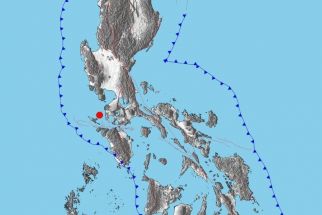New IRR fleshes out Estrada’s air liberalization thrust
January 7, 2001 | 12:00am
President Estrada’s desire to further liberalize the airline industry has finally taken form with the drafting of the implementing rules and regulations (IRR) of Executive Order 219 that would implement the government’s domestic and international civil aviation policy.
The drafting of the IRR was made with the participation of the government agencies concerned like the Civil Aeronautics Board (CAB), the airline companies, the private sector and advocacy groups such as the Freedom to Fly Coalition.
Foreign Affairs Undersecretary and Civil and Aeronautics Board (CAB) member Franklin Ebdalin said the draft IRR is actually in implementation of EO 219 establishing the domestic and international civil aviation liberalization policy promulgated by then President Ramos.
"Instead of a new executive order which we would recommend to President Estrada to flesh out his policy pronouncement made last Oct. 30, the body decided on the IRR of EO 219," Ebdalin said.
The draft IRR addresses the issues of number of designated carriers, flight frequencies, capacities, traffic rights and routes, tariff and fares.
As provided in the IRR, the CAB shall encourage the operation of multiple domestic carriers on all domestic routes, with a minimum of two operators on each route or link.
The right of an existing operator to leave a particular route shall be recognized subject, however, to the obligation that "no carrier shall abandon any route, or part thereof for which a permit has been issued, unless upon a finding by the board that continued operation or servicing of the route is uneconomical and the public interest is not prejudiced by its abandonment."
On international routes, there shall be at least two designated official carriers of the Philippines for each international route established under the existing air services agreements or other arrangements.
A carrier designation may be recommended by the board to be withdrawn, particularly if the designated official carrier does not operate the route granted to it or upon a finding that its designation does not benefit the national interest.
The designation of a Philippine international carrier shall automatically be canceled or withdrawn if the Philippine international air carrier has not operated the approved schedules or service for a period of six months from date of designation.
In determining any exchange of traffic rights and routes with other countries, the board shall consider national interest and reciprocity. In determining what is the national interest, the board shall consider the promotion of international trade, foreign investments and tourism, national security, users of the air services, the status of bilateral relations, developments of civil aviation in the country and other political or diplomatic considerations.
The board shall ensure that the exchange of traffic rights and routes shall be made through bilateral air service negotiations or other arrangements and confirmed through the diplomatic channels. Third and fourth freedoms of the air shall be exchanged on the basis of reciprocity and value for the Philippines. The grant of fifth freedom shall be secondary and supplemental to third and fourth freedoms, the IRR states.
The drafting of the IRR was made with the participation of the government agencies concerned like the Civil Aeronautics Board (CAB), the airline companies, the private sector and advocacy groups such as the Freedom to Fly Coalition.
Foreign Affairs Undersecretary and Civil and Aeronautics Board (CAB) member Franklin Ebdalin said the draft IRR is actually in implementation of EO 219 establishing the domestic and international civil aviation liberalization policy promulgated by then President Ramos.
"Instead of a new executive order which we would recommend to President Estrada to flesh out his policy pronouncement made last Oct. 30, the body decided on the IRR of EO 219," Ebdalin said.
The draft IRR addresses the issues of number of designated carriers, flight frequencies, capacities, traffic rights and routes, tariff and fares.
As provided in the IRR, the CAB shall encourage the operation of multiple domestic carriers on all domestic routes, with a minimum of two operators on each route or link.
The right of an existing operator to leave a particular route shall be recognized subject, however, to the obligation that "no carrier shall abandon any route, or part thereof for which a permit has been issued, unless upon a finding by the board that continued operation or servicing of the route is uneconomical and the public interest is not prejudiced by its abandonment."
On international routes, there shall be at least two designated official carriers of the Philippines for each international route established under the existing air services agreements or other arrangements.
A carrier designation may be recommended by the board to be withdrawn, particularly if the designated official carrier does not operate the route granted to it or upon a finding that its designation does not benefit the national interest.
The designation of a Philippine international carrier shall automatically be canceled or withdrawn if the Philippine international air carrier has not operated the approved schedules or service for a period of six months from date of designation.
In determining any exchange of traffic rights and routes with other countries, the board shall consider national interest and reciprocity. In determining what is the national interest, the board shall consider the promotion of international trade, foreign investments and tourism, national security, users of the air services, the status of bilateral relations, developments of civil aviation in the country and other political or diplomatic considerations.
The board shall ensure that the exchange of traffic rights and routes shall be made through bilateral air service negotiations or other arrangements and confirmed through the diplomatic channels. Third and fourth freedoms of the air shall be exchanged on the basis of reciprocity and value for the Philippines. The grant of fifth freedom shall be secondary and supplemental to third and fourth freedoms, the IRR states.
BrandSpace Articles
<
>
- Latest
- Trending
Trending
Latest

























